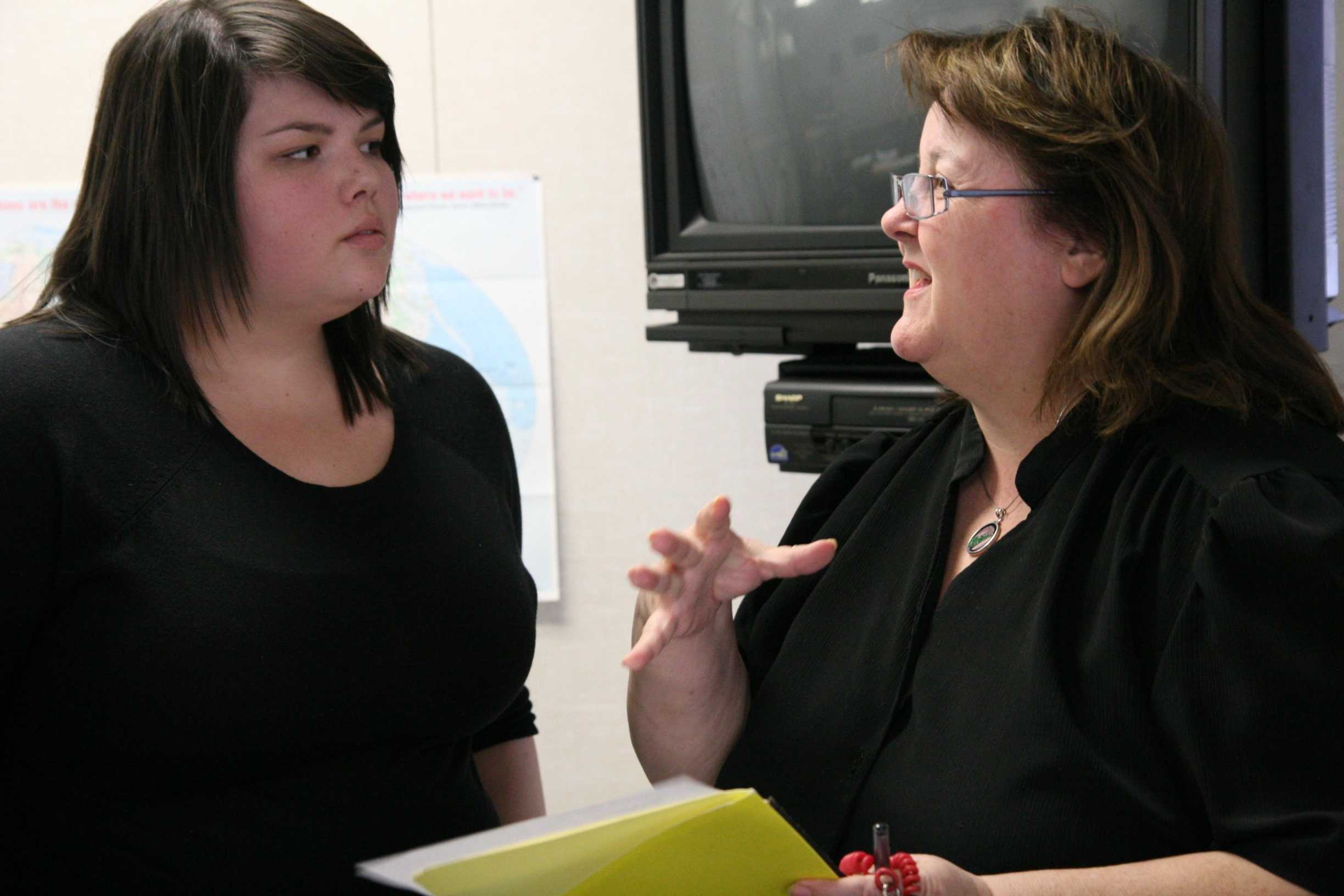By Samuel Finch / Features Editor

Planning (Allison Perez / Photo Editor)
By Samuel Finch / Features Editor
Decades after its inception in the early 1970s, the Riverside City College Photography Program continues to train students interested in the medium for both artistic and professional pursuits.
“Isn’t photography the most wonderful thing in the world?” asked Nancy Gall, associate professor of Photography. “Whether we’re using a cellphone or we’re using a $25,000 camera, we have the opportunity to capture a slice of time. And that’s irreplaceable.”
Now the full-time head of the program, Gall applied for the position at the suggestion of her predecessor upon his retirement. Gall’s roots in photography run deep.
“I paid 25 cents and three Sugar Daddy wrappers for my first camera,” she said with a laugh. “They sent me this tiny little camera in the mail and I loaded film into it and I started taking photographs when I was about eight years old.”
From there she pursued the medium alongside her passions of writing and editing, eventually discovering her love of teaching.
“Watching my students succeed,” Gall said of her favorite aspect of the job. “Watching my students learn and grow. Many people think that taking photography will be an easy A, but then they get into the first class and realize how serious we are about it and how if you want to take control of your camera, rather than have your camera take control of you, there are so many things to learn. And it’s terribly exciting.”
“For instance,” Gall continued, “I showed my students all sorts of ways to control sense of motion in a photograph using shutter speed and you can look around and see people going, ‘Oh yeah, I want to do that.'”
In the time that she has been involved with the program, Gall has witnessed a great deal of change.
“When I became a full-time faculty member in photography, we had one digital class,” she said. “Now, all but one of our classes incorporate digital photography. We still teach film photography, and we teach digital photography because we consider them both to be photographic tools, and many times we use them in concert with each other.”
In addition to expanding the courses offered, now a total of eight that yield a certificate when completed and an Associate’s degree when completed in conjunction with general education, the program has grown in other ways.
“We’ve added a dedicated digital classroom,” Gall said. “We’ve added loan cameras, both digital and film, as well as tripods and accessories. We’ve also been able to acquire some very high-end professional cameras and a lot of really great studio equipment so that we can teach our students how to do professional level studio photography, both indoors and outdoors.”
Still, she has hopes of improving the program in the future.
“We’d love to have a professional studio,” Gall said. “We would like to know that the money is there so that we can always have current computers and current software so that our students can have the finest possible digital experience. And we’d also like to make sure that we keep this wonderful, traditional wet lab that we have. Other than that, I couldn’t ask for better students. We have dedicated, wonderful students, many of whom will go on to work professionally as photographers.”
Students such as Blanca Rivera, recent graduate of the program and current president of the RCC Photo Club.
“I call her my photo mama,” Rivera said of Gall, smiling. “She has given me some of the best advice when it comes to photography.”
Rivera, who first picked up a camera at the age of six and received her first digital camera ten years later, plans to earns a Ph.D in zoology and integrate her passion for photography into her work. In high school Rivera participated in her school’s photography club.
“Then I got to RCC and my cousin who had taken a photography program prior told me that I had to do it, that it was one of the best in California,” she said. “So I took Photo-8 and I fell in love with it. I love that they start you off with black and white photography. You’re not going to understand much when it comes to taking color photographs if you don’t understand how to take a good black and white image because you learn how to communicate with light.”
But it was not only the classes that had Rivera coming back for more.
“I like the people,” she said. “When you become involved in a program like the RCC Photo Program, you create a little family. When I finished the program last spring, it was a very sad time for me because I felt like I was losing my little family. You develop relationships with the instructors, they become your friends, they’re helpful and any question you have, they’re willing to answer. And when you don’t have them, you have your peers to turn to. You have a little close-knit family, you’re all brothers and sisters and you all help each other out.”
As she moves forward, Rivera also has hopes for the future of the program.
“I would like to see it grow,” Rivera said. “I would like to see them introduce some newer classes. I’d like to see them keep things film as well. I’d like to see them keep educating people in film because as the years go on, people are going to forget what that looks like.”
“I’d like to see them expand even a little bit more into event photography, especially weddings,” she added.
With the future of constantly changing technology unknown, RCC stands ready to continue its instruction of the interested with unchanging passion and dedication.






